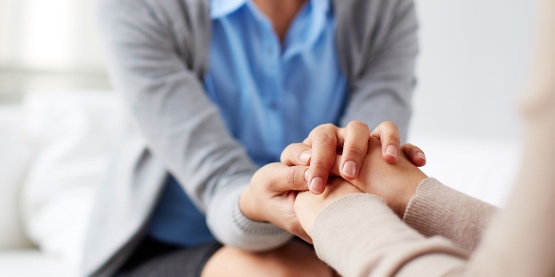
HOW DO YOU FEEL SPIRITUALLY AFTER THE EARTHQUAKE?
You experienced the negative effects of the earthquake. Now, while life is starting to return to normal, it is natural for you to be affected more or less spiritually. Not only you, but everyone in the earthquake zone experienced these. Everyone was scared. It was a feeling of dread rather than ordinary fear. Most people felt helpless like you.
MORE THAN A WEEK HAVE BEEN AFTER THE EARTHQUAKE, YOU MAY STILL HAVE THE FOLLOWING COMPLAINTS:
-Extreme fear, helplessness, horror, shock, inability to sense your emotions, unresponsiveness, and inability to cry
-Feeling as if you are constantly experiencing the earthquake event: You can remember the earthquake moments again and again, have dreams or daydreams about what happened, and feel as if the event is happening again.
- Avoiding places or situations that remind you of the earthquake: You may not remember all or parts of the event, cannot enter the house where the earthquake occurred, stay away from people, and may not want to talk about the event.
-Symptoms of excessive tension: You may experience insomnia, irritability, irritability, excessive startle, palpitations, tremors, difficulty in breathing.
-You may feel like you have no future left.
-You may feel guilty about the death of your loved ones.
WHAT CAN YOU DO TO FEEL BETTER?
1. Anxiety and related symptoms such as frequent breathing, palpitations, and difficulty in breathing may occur, these are the usual symptoms that occur when the person feels in danger. Anxiety doesn't make you crazy, but it makes you feel like you're going to die. When you feel in danger due to the events you have experienced, it is natural for your body to experience symptoms such as palpitations, shortness of breath, nausea, tremors, and a feeling of pressure in your chest. These symptoms will disappear on their own when your anxiety subsides.
2. Do not avoid talking about your experience with a relative who can listen to you. Maintain positive and supportive relationships with friends, family, neighbors. Social support has a healing effect on people's psychological post-traumatic effects. Do not try to suppress your feelings or sadness. Share your feelings and thoughts about this event with those around you who can listen to you.
3. If you are worried about going into closed environments or being in crowded places after the earthquake, you can try to do these with people you know until your anxiety level decreases.
4. Reduce exposure of children, especially to images and videos of earthquakes. Adults may sometimes need to watch the images, but watching images of destruction over and over again throughout the day will increase your psyche.
5. In the first days, feelings of insomnia, loss of appetite, not wanting to do anything, weakness, helplessness and hopelessness are normal. Therefore, do not use sedatives or alcohol, your sleep will improve within days.
6. Take care of your body. Do not use coping methods that will negatively affect your health, such as alcohol and cigarette use. Whatever relaxes you (walking, talking to your friends, worship, being in nature, etc.) try to do them. If you are feeling very anxious, breathing exercises and relaxation exercises may be good.
7. After disasters and traumas, people may tend to look for a criminal. Beware of rumors, news and gossip that could scapegoat them because of a single person or group. These rumors, which range from simple gossip to supernatural explanations, can cause social divisions.
